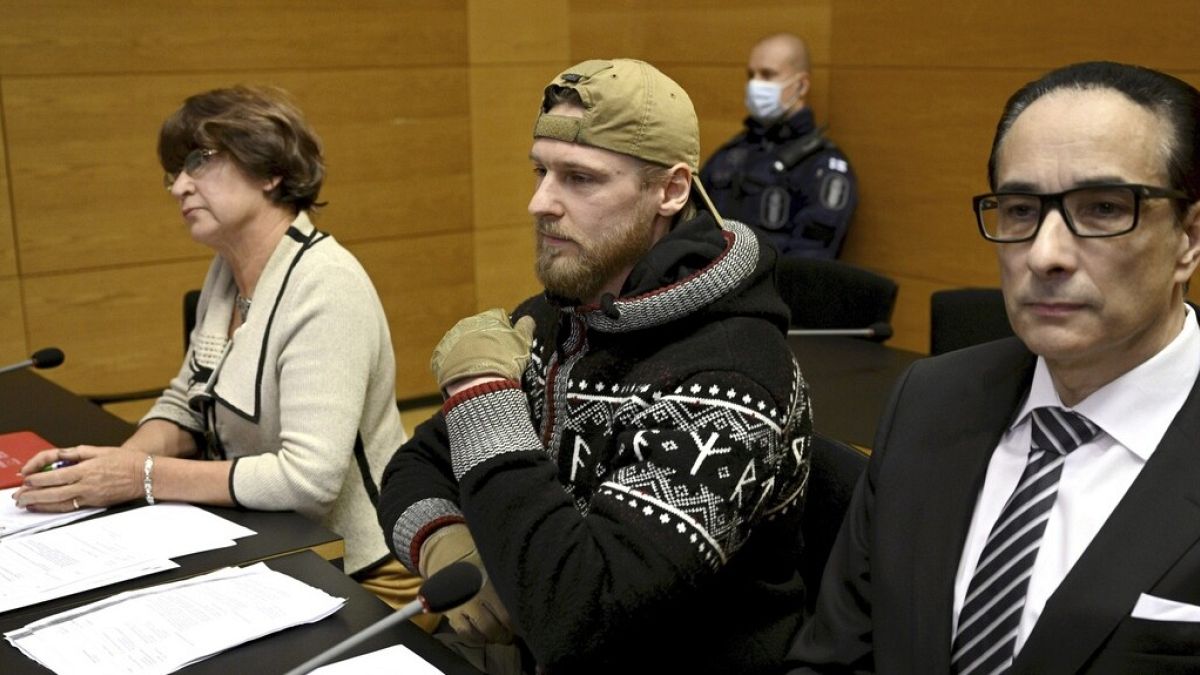Yan Petrovsky, also known as Voislav Toden, a Russian combatant who fought in Ukraine in 2014, has been charged with alleged war crimes by prosecutors in Finland. Petrovsky, a founding member of the far-right neo-Nazi paramilitary group Rusich, is accused of participating in acts that violate the laws of war as the deputy commander of the unit. Finland’s National Prosecution Authority stated that Petrovsky and his unit are accused of killing 22 Ukrainian soldiers and seriously wounding four. Despite denying involvement in the crimes, Petrovsky has been under EU and US sanctions since 2022 and has been in custody in Finland since July 2023.
In 2014, Russia sent its forces to Crimea and launched an attack on eastern Ukraine, leading to a long-running armed conflict between Moscow-backed forces and Ukrainian forces. The two self-proclaimed “people’s republics” in the Ukrainian regions of Luhansk and Donetsk declared independence, which has not been recognized by Ukraine and the West. The Kremlin has claimed to have annexed the temporary-occupied territories following its invasion of Ukraine in early 2022. Petrovsky’s activities in a unit called Rusich, which fought on the side of the Russian-backed Luhansk separatist region against Ukraine, have led to the charges of war crimes against him in Finland.
Despite facing an arrest warrant from Ukraine on suspicion of participating in a terrorist organization, Finland’s Supreme Court ruled that Petrovsky cannot be extradited to Ukraine due to the risk of inhumane prison conditions there. The trial for Petrovsky is set to begin on 5 December and last until the end of January 2025. The Finnish prosecutors stated that the country has an obligation to try Petrovsky, who managed to enter Finland with a new identity despite a EU-wide entry ban. Petrovsky’s denial of involvement in the alleged war crimes contrasts with the evidence presented by prosecutors connecting him to the killings of Ukrainian soldiers.
The charges against Yan Petrovsky shed light on the complex dynamics of the conflict in Ukraine, with Russia’s involvement in supporting separatist movements and paramilitary groups. The case also highlights the international community’s efforts to hold individuals accountable for war crimes and violations of international law. The trial in Finland will provide an opportunity to examine the evidence against Petrovsky and determine his role in the alleged crimes committed by the Rusich unit. The scrutiny of Petrovsky’s actions and his connections to the neo-Nazi group Rusich will be a focal point of the trial, as prosecutors seek to establish his accountability for the war crimes.
The case of Yan Petrovsky underscores the ongoing challenges in prosecuting individuals involved in conflicts and atrocities, particularly when they cross international borders. The extradition ruling by Finland’s Supreme Court reflects the complexities of international law and the need to balance accountability with concerns for human rights. The trial proceedings will be closely watched by legal experts, human rights advocates, and international observers, who will be monitoring the fairness and transparency of the judicial process. The outcome of the trial will have implications for future cases involving individuals accused of war crimes and terrorism, as well as for the broader efforts to promote justice and accountability in conflicts around the world.










